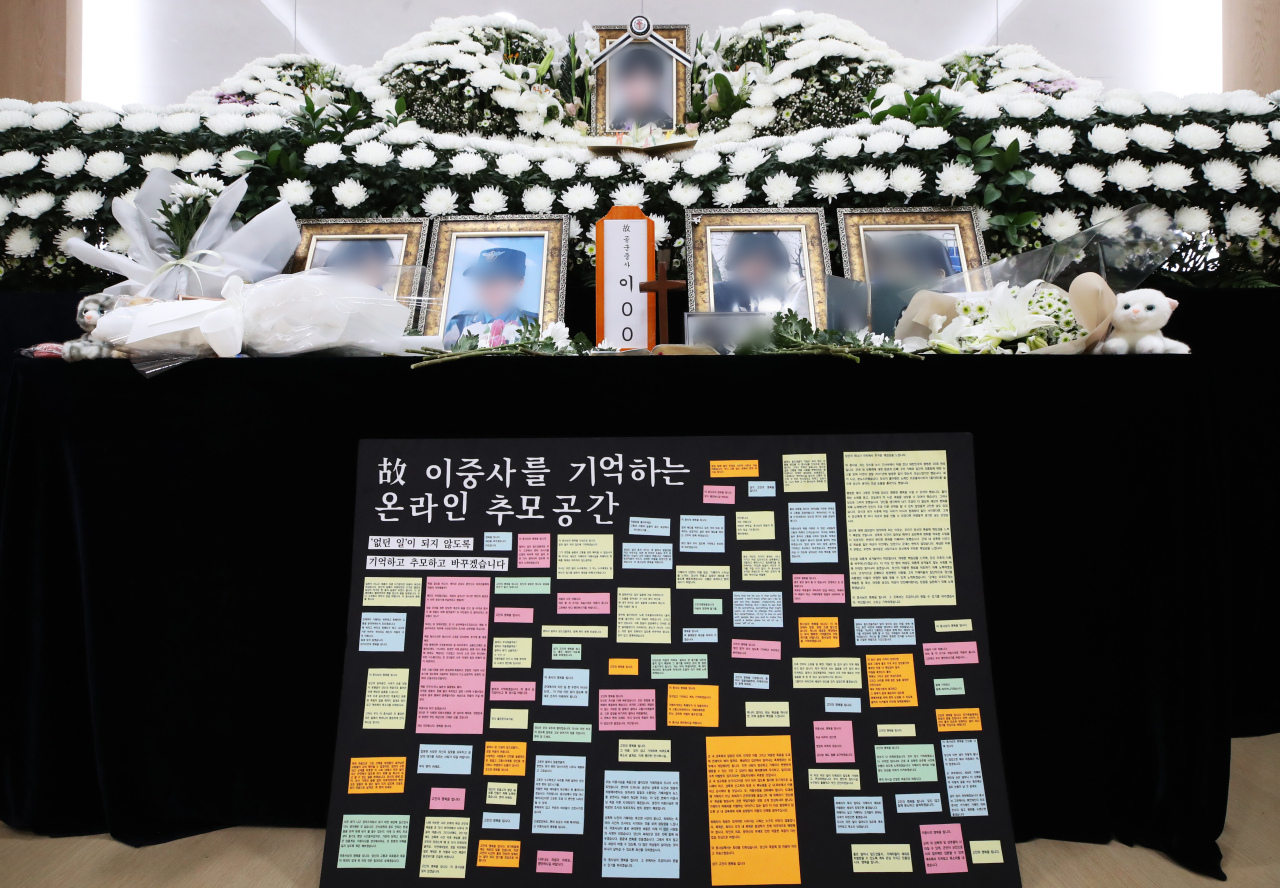 |
A funeral altar at the Armed Forces Capital Hospital in Seongnam, Gyeonggi Province, is set up to commemorate an Air Force master sergeant who reported a sexual assault in March before taking her own life in May. (Yonhap) |
The military is facing the biggest change in its justice system in years, with lawmakers pushing for reforms that could remove the military judiciary and commanders from the process of handling sex crimes.
An Air Force master sergeant who took her life in late May after being sexually assaulted by a superior sparked public outrage, prompting lawmakers to seek changes in how the military handles sexual violence. The victim’s family believes a systematic cover-up led to her death.
The case never got to trial and critics said a botched initial investigation, which the defense minister called “sloppy” and “incompetent,” was to blame. Nevertheless, legislators are doubling down on revamping the military’s entire criminal system, buoyed by strong support from the public and the president himself.
President Moon Jae-in, a longtime advocate for decentralizing the military’s judicial power, called on his Democratic Party to take the opportunity to put in place a new system to avoid another similar tragedy.
And lawmakers from the ruling Democratic Party have rolled out what might be the most progressive reform bill so far. According to the proposal, military courts would hold only first trials and hand over appeals to civilian courts. The Supreme Court would still deliver the final rulings.
Other proposed bills have contained similar provisions, but this one goes further.
In sex crime cases, under this bill, even first trials would be out of the hands of military courts. Instead, the cases would be referred to civilian courts and investigations would be handled by the prosecutors’ office, not the military prosecution.
The bill, whose main objective is to boost civilian oversight of the military, would reduce commanders’ powers as well.
Under the bill, commanders would no longer have the power to commute sentences or exert any authority over the military prosecutors at the bases they oversee. Military prosecutors would have to report to the defense minister or their respective armed forces chiefs instead.
Commanders who oversee military courts handling first trials would no longer be able to appoint judges; the defense minister would fill that role.
The ruling party expects to put the bill to a vote this month, hoping to bring closure to the yearslong pursuit of a new military justice system, which has been elusive for the last 17 years because of military opposition.
In 2004, the reform-minded President Roh Moo-hyun took office and led a campaign to restructure the military judicial system. Beside him was President Moon Jae-in, who was a senior adviser. Their top-down approach failed to win over either the military or a divided public.
The movement gained traction again in 2014, when an Army private was found dead after being assaulted by his colleagues and superior. A human rights watchdog exposed military cover-ups and the perpetrators were punished. One got a 40-year sentence.
Yet little was done to address accusations that the military was soft on perpetrators and unfair to victims. This time, Seoul’s Defense Ministry says it is willing to see the reforms through but has yet to decide how.
“An independent and fair trial and an investigation likewise should come along. … An initiative that invites them will be key to preventing crimes and cover-ups in the military,” Defense Minister Suh Wook told the National Assembly a week ago.
By Choi Si-young (
siyoungchoi@heraldcorp.com)








![[Today’s K-pop] Blackpink’s Jennie, Lisa invited to Coachella as solo acts](http://res.heraldm.com/phpwas/restmb_idxmake.php?idx=644&simg=/content/image/2024/11/21/20241121050099_0.jpg)